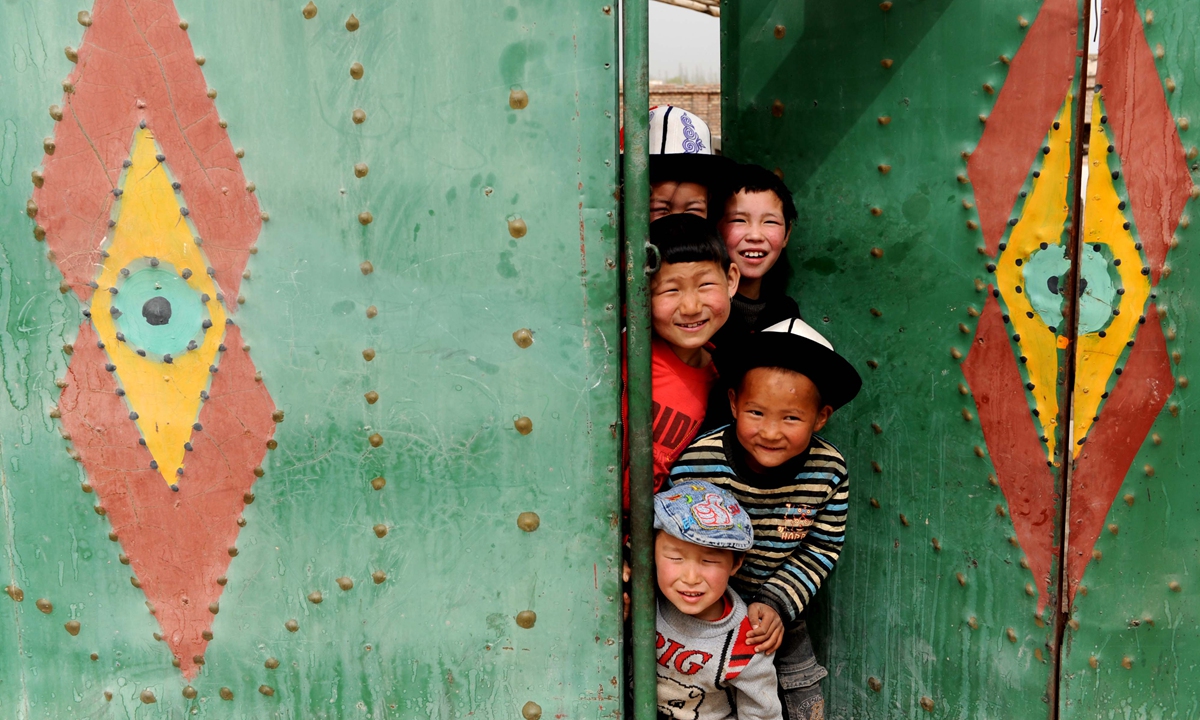
Children in Wushi county, Aksu region of Northwest China's Xinjiang Uygur Autonomous Region Photo: VCG
China's ethnic affairs authorities refuted some western media's smear of the so-called cultural genocide in ethnic minority regions, saying that there is no obstacle for China's ethnic minorities to learn and use their own languages in work and life.
While popularizing and promoting Putonghua, the standard spoken and written Chinese language in accordance with the law, China fully respects and guarantees the freedom of ethnic minorities to use their own languages and creates conditions as much as possible for them to learn and use their languages, said Zhao Yong, deputy director of National Ethnic Affairs Commission of China, at a press conference on the achievements and measures for China's cause of national unity and progress in the new era.
Zhao's remarks were made in response to some media reports claiming that China's promotion of Putonghua in Northwest China's Xinjiang Uygur Autonomous Region, Southwest China's Xizang (Tibet) Autonomous Region and other ethnic minority areas in recent years may be "detrimental to the development of ethnic minority languages and cultures."
Such reports are either based on ignorance or deliberate smears, he said.
In primary and secondary schools in ethnic minority regions, classes are taught not only in Putonghua, but also in the spoken and written languages of ethnic minorities according to the actual conditions, especially in ethnic autonomous areas and places with relatively large ethnic minority populations, Zhao said.
On the internet, ethnic minorities can freely access information, learn and communicate in their languages. In regions such as Xinjiang and Xizang, there are radio, television stations and journals in local spoken and written languages. In judicial work, conditions have been provided for ethnic minority groups to file lawsuits in their spoken and written languages, he noted.
China, as a united multi-ethnic state, has 56 ethnic groups identified and confirmed by the central government. As the majority of the population belongs to the Han ethnic group, China's other 55 ethnic groups are customarily referred to as national minorities.
Of China's 55 ethnic minorities, 52 have their own spoken languages, with the exception of the Hui, who have used Han Chinese historically, and the Manchu and She peoples who now generally use Han Chinese, according to a white paper released in June 2021.
To protect their own languages, China has specially designed the "Database of Chinese Language Resources" to collect, sort out, develop and utilize them, Zhao said.
China's Constitution and the Law on the Standard Spoken and Written Chinese Language have specified the legal status of the country in promoting Putonghua, while also guaranteeing the freedom of ethnic minorities to learn and use their own languages, Zhao stressed.




